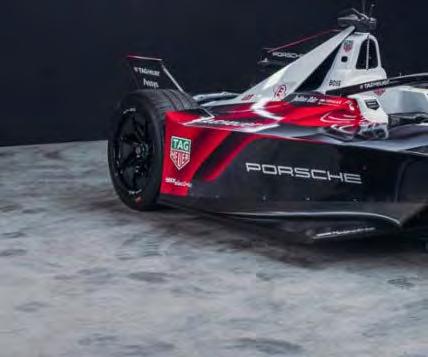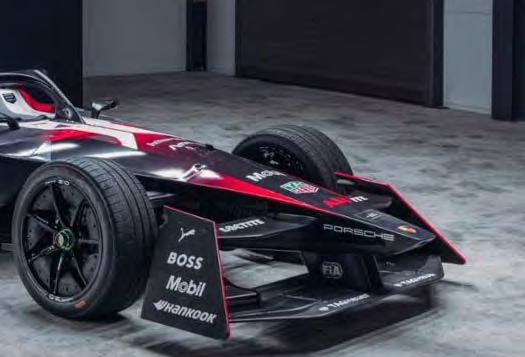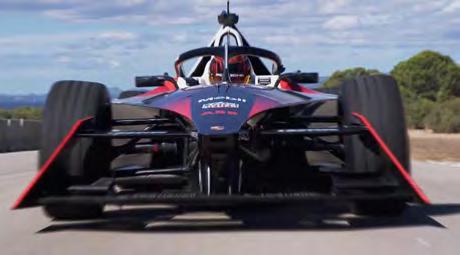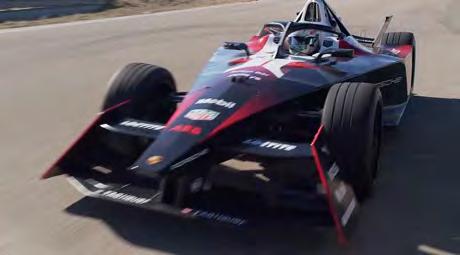
2 minute read
New from Porsche
Porsche News
New Formula E Porsche 99X Electric Gen3 celebrates world premiere
Click on for Website
Mark Your Calendars
With the Porsche 99X Electric Gen3, Porsche
heads into a new era of Formula E. The electric racing car, which underwent an evolution in the Porsche Development Centre in Weissach, celebrated its world premiere in the Porsche Experience Center in Franciacorta, Italy. The Mexico City E-Prix on January 14, 2023 will be the first race for the Porsche 99X Electric Gen3. The arrival of the third vehicle generation at the start of next season heralds a new era for the world’s first electric racing series.
... January 14, 2023
Performance: The performance of the new Gen3 vehicles increases from 250 to 350 kW (476 hp). Powertrain: Developed in-house by Porsche Motorsport with a maximum drive power of 350 kW on the rear axle – 100 kW more than the predecessor generation (Gen2). Brakes: The new front powertrain adds 250 kW to the 350 kW at the rear, resulting in energy recovery with an output of up to 600 kW – more than double the regenerative capability of the Gen2 vehicles. Additional fraction brake controlled by a brake-by-wire unit. Efficiency: The electric motor achieves about 95 percent power efficiency compared to around 40 percent for an internal combustion engine. Over 40 percent of the energy used is recuperated via regenerative braking. Charging capability: The new ultra-high-speed charging capacity of the Gen3 vehicles should add around 600kW of energy during the race. This means that the chargers of the new Formula E generation would be almost twice as powerful as the world’s most advanced commercial chargers. Moreover, the fastcharge technology should guarantee a consistently high battery performance. Sustainability: According to the component manufacturer, the battery cells in the new Gen3 cars are made from sustainably sourced minerals. After every race season, the battery cells should be reused or recycled. For the construction of the carbon fibre bodywork, the manufacturer states that recycled carbon fibre is used from retired Gen2 vehicles. This should reduce the carbon footprint of production by more than ten percent. To determine measures that can help reduce environmental impact, the carbon footprint of new Formula E vehicles is measured from the very start of the design phase. All unavoidable emissions will be offset as part of Formula E’s net zero carbon commitment.






